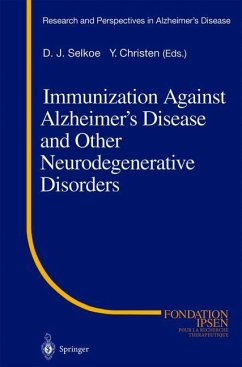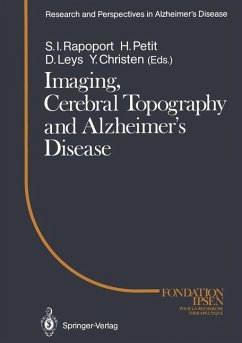
Diabetes, Insulin and Alzheimer's Disease

PAYBACK Punkte
58 °P sammeln!
Neurons share more similarities with insulin-producing pancreatic islet cells than with any other cell type. The root of this similarity may lie in the islet's evolution from an ancestral insulin-producing neuron. The islet-neuron connection becomes less surprising as we learn more about insulin's involvement in functions far from its traditional role in mediating glucose uptake in muscle. The importance of insulin in the regulation of corporal aging has been established by the dramatic increases in longevity experienced by animals in which the adipose insulin receptor has been genetically eli...
Neurons share more similarities with insulin-producing pancreatic islet cells than with any other cell type. The root of this similarity may lie in the islet's evolution from an ancestral insulin-producing neuron. The islet-neuron connection becomes less surprising as we learn more about insulin's involvement in functions far from its traditional role in mediating glucose uptake in muscle. The importance of insulin in the regulation of corporal aging has been established by the dramatic increases in longevity experienced by animals in which the adipose insulin receptor has been genetically eliminated, or in which the insulin-related daf genes have been mutated. New research suggests that, analogous to its influence on corporal aging, insulin also makes important contributions to brain aging and the expression of late-life neurodegenerative disease. Insulin plays a key role in cognition and other aspects of normal brain function. Insulin resistance induces chronic peripheral insulin elevations and is associated with reduced insulin activity both in periphery and brain. The insulin resistance syndrome underlies conditions such as Type 2 diabetes mellitus and hypertension, which are associated with age-related cognitive impairment and Alzheimer's disease.
This book discusses the mechanisms through which insulin dysregulation contributes to the development of cognitive impairment and late-life neurodegenerative disease. Given the recent pandemic of conditions associated with insulin resistance, it is imperative that we achieve a comprehensive knowledge of the mechanisms through which insulin resistance affects brain function in order to develop therapeutic strategies to address these effects.
This book discusses the mechanisms through which insulin dysregulation contributes to the development of cognitive impairment and late-life neurodegenerative disease. Given the recent pandemic of conditions associated with insulin resistance, it is imperative that we achieve a comprehensive knowledge of the mechanisms through which insulin resistance affects brain function in order to develop therapeutic strategies to address these effects.














